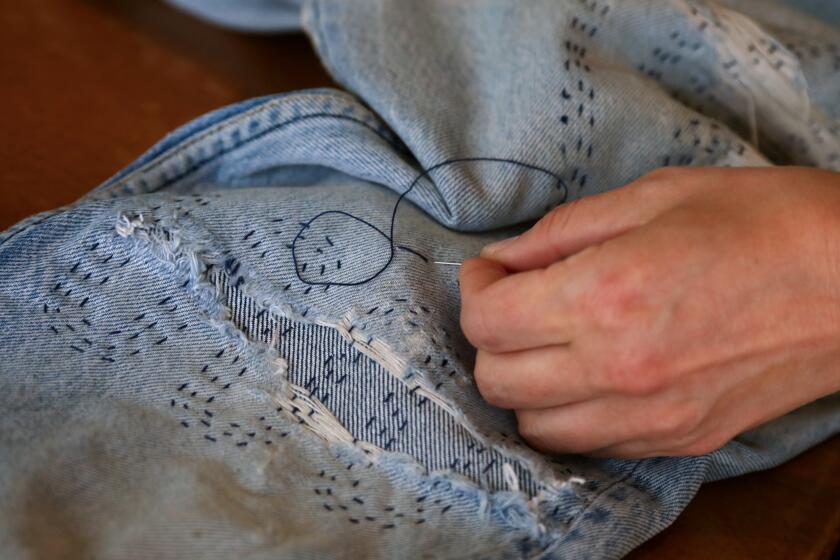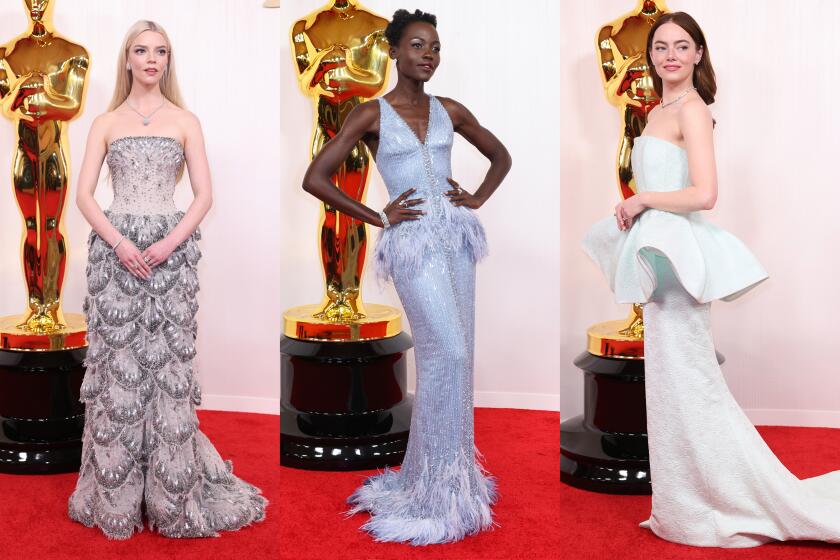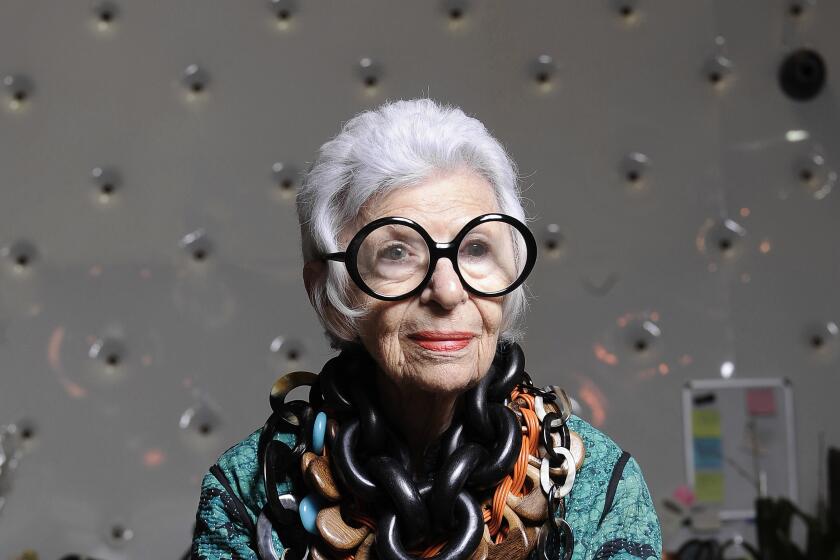Payless CEO Striding Toward Fashion
When Matt Rubel took over as chief executive of Payless ShoeSource Inc. last summer, he inherited a company a little down at the heels.
With more than 4,600 stores, Payless is the largest specialty shoe retailer in the country. But years of conservative management had left it in the worst place for a seller of fashion -- out of date.
The company continued to use a 1980s-era bubble-lettered logo, some stores hadn’t seen a new coat of paint in a decade and the stores’ simple layout of aisles filled with shoe boxes fostered self-service but didn’t do much to showcase new products.
Worse, customers found that the product mix leaned toward providing functional shoes for bargain shoppers, not catering to style mavens.
“People just thought of us as cheap shoes,” Rubel said as he stood outside the Payless store in Independence Center, an upscale mall in suburban Kansas City.
The Independence store represents Payless’ future and reflects Rubel’s vision for the company.
A new, contemporary logo hangs above the door, beckoning shoppers into a brightly lighted area, dubbed the “hot zone,” with displays of the store’s latest styles and the company’s growing line of handbags and accessories.
The shoes themselves -- including fashionable cork wedges, espadrilles and strappy sandals -- reflect more contemporary fashion and feature more brand names, such as Champion and Airwalk, to go alongside the chain’s in-house products.
The company this fall plans to roll out Abaete for Payless, a line of shoes created by New York designer Laura Poretzky, and it recently signed a deal to put out shoes affiliated with the American Ballet Theater -- a virtual lock for attracting young girls and their moms.
“I think Matt was clearly charged with shaking things up,” said Michael Atmore, editorial director for industry magazine Footwear News. “This is just the beginning, really. He’s doing a lot of things that have worked for other people.”
The challenges are still massive. Overall, the shoe market has exploded in the last year, growing almost 11% to $42.7 billion, according to market research firm NPD Group.
NPD analyst Marshal Cohen said shoppers were becoming more judicious in their apparel purchases. Rather than replacing their wardrobes, they are buying several pairs of shoes to freshen them up.
That has shoe chains that compete with Payless, such as Famous Footwear and Shoe Carnival, and big-box retailers Wal-Mart Stores Inc. and Target Corp., also trying to boost their products with better styling. Target, for example, is selling shoes designed by Isaac Mizrahi.
The true bargain hunters could prove a challenge for Payless.
As the company tries to introduce higher-priced shoes, it must do so without forgetting the shoppers who aren’t willing to pay more than $20 for a pair.
It’s unknown how well the public is receiving Rubel’s changes.
In Payless’ first quarter, the company said, sales at stores open at least a year rose 0.4% from a year earlier.
The uptick came from costlier shoes (the average price rose 11.2%), rather than from an increase in buyers (unit sales declined 8.6%).
Analysts are optimistic, however. They noted that Payless’ first-quarter earnings rose 19% to $36 million and that the company turned a profit last year for the first time since 2002. Analysts also said that Payless was only in the early stages of its efforts to rejuvenate the brand and that selling more fashionable, high-margin shoes could only help the bottom line.
Goldman Sachs analyst Margaret Mager said in a research note that she expected the company to get earnings back to and perhaps above historical peak levels.
“CEO Matt Rubel has identified the appropriate focus areas including improvement in consumer segmentation, merchandise, messaging and the sale experience to drive results and growth,” Mager said.
Rubel’s move to Topeka, Kan.-based Payless in July, replacing the retiring Steven Douglass, was a natural progression for a man credited with turning Nike Inc.’s Cole Haan division from a staid men’s luxury shoe brand into a high-profile fashion line.
His background in merchandising and retailing included stints managing such well-known brands as J. Crew, Revlon and Tommy Hilfiger.
Rubel said he was attracted to what he saw as Payless’ untapped potential of marrying its ubiquitous presence in shopping centers to shoppers’ need for affordable quality.
“Great platform. It had great distribution into the marketplace but wasn’t emotionally connecting with the customer in the way I thought it could,” he said.
Other observers were less diplomatic in what they saw as the company’s problems.
“His predecessor had really done a disservice to the Payless shareholders and customers by making some really boneheaded decisions,” said John Shanley of Susquehanna Financial Group. He pointed to decisions to eliminate popular products and the use of cash flow to open underperforming stores in South America instead of upgrading the chain’s computer system.
Rubel has used his sense of style to renovate Payless’ product mix. He has sent buyers to Europe to study fashion trends and incorporate that into new designs. He’s also made deals with footwear companies such as youth-oriented American Eagle and produced the Shaquille O’Neal Dunkman athletic shoe, priced at $40, a fraction of what his old boss Nike charges for its Air Jordans at the Foot Locker store across the mall.
He’s also developed a series of store renovations to emphasize new products and get shoppers thinking about buying purses to go with their shoes. The “hot zone” concept on display in Independence will soon expand to 250 stores from 40.
Most important, Rubel said, he’s trying to change people’s perceptions of mass-produced footwear and get them to understand that just because something isn’t pricey doesn’t mean it’s cheap. He frequently points out that the deal with Abaete will provide women with shoes they’ve seen on fashion runways in New York for $25 to $45.
“The whole thing is, style and design do not have to be exclusive, they can be inclusive,” he said. “So the mission we’ve made for ourselves is to democratize style and fashion, make it for everyone.”



